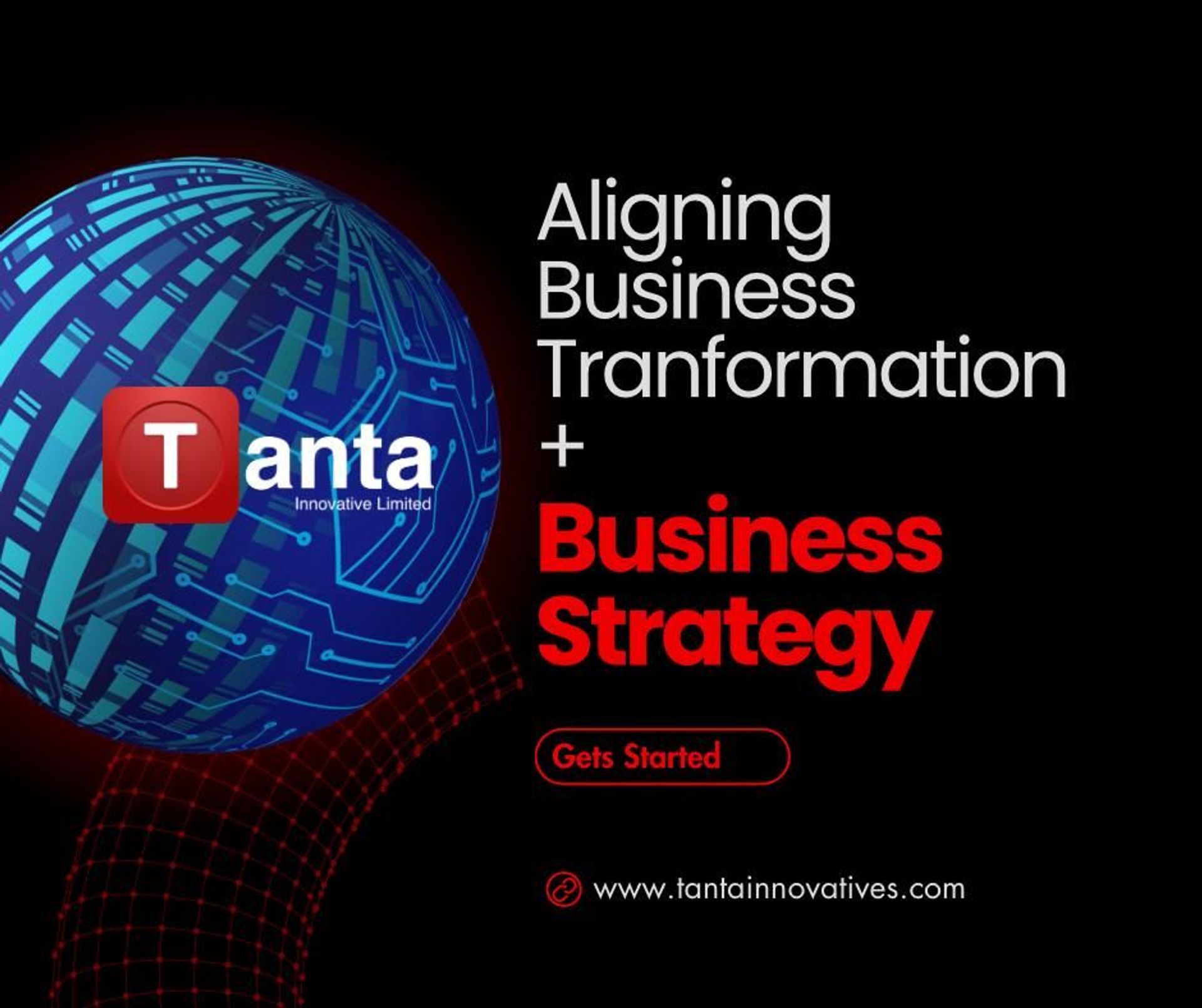How to Align Digital Transformation with Your Business Strategy for Success
Tolulope Arobieke
· 3 min read min read
0
0

The advent of digital transformation has revolutionized the business landscape, compelling organizations to reassess their operational frameworks and cultural dynamics (Kane et al., 2016).
As companies embark on this digital journey, they inadvertently shape the values, behaviours, and attitudes of their employees, fostering a culture of innovation, collaboration, and customer-centricity.
Now lets consider the digital transformation paradigm.
The Digital Transformation Paradigm
Digital transformation is more than merely implementing new technology; it's a holistic cultural revolution that:
Breaks down silos, promoting cross-functional collaboration (Davenport & Dyché, 2013)
Encourages innovation, experimentation, and continuous learning (Barton & Court, 2012)
Enables data-driven decision-making, enhancing organizational agility (Tahir et al., 2017)
Prioritizes customer experience, driving business growth and loyalty
Cultural Implications of Digital Transformation
Digital transformation necessitates a flexible and adaptable workforce, willing to:
- Embrace change and uncertainty
- Acquire new skills and knowledge
- Think creatively to solve complex problems
This mindset shift fosters a culture of innovation, where employees thrive in a dynamic environment (Kane et al., 2016).
Mitigating Challenges
While digital transformation presents opportunities, it also raises concerns:
- Job insecurity and fear of obsolescence
- Decline in face-to-face interactions and potential sense of isolation
- Managing cultural and technological change
To address these challenges, organizations must:
- Invest in employee training and development (70% of employees report lacking necessary skills for digital transformation) (Gartner, 2020)
- Promote a culture of continuous learning and innovation
- Prioritize employee well-being and engagement
- Foster open communication and transparency
Best Practices for Successful Digital Transformation
1. Develop a clear digital strategy, aligning business objectives with technological capabilities.
2. Engage stakeholders, fostering a culture of change and innovation.
3. Invest in employee training and development, ensuring workforce readiness.
4. Prioritize customer experience, driving business growth and loyalty.
5. Monitor progress, adjusting strategies to optimize outcomes.
Conclusion
Digital transformation is a catalyst for cultural renewal, presenting opportunities for growth, innovation, and customer satisfaction. By understanding the implications of digital transformation and mitigating potential challenges, organizations can create a positive, productive, and innovative work environment.
References:
Barton, D. & Court, D. (2012) Making advanced analytics work for you. Harvard Business Review, 90(10), 128-133.
Davenport, T. H. & Dyché, J. (2013) Big data in big companies. International Journal of Business Intelligence Research, 4(1), 1-15.
Gartner (2020) Survey Analysis: Digital Transformation Requires New Skills.
Kane, G. C., Palmer, D., Phillips, A. N., Kiron, D. & Buckley, N. (2016) Aligning the Organization for Its Digital Future. MIT Sloan Management Review, 58(1), 1-28.
Tahir, M., Barker, J. & Ahmad, A. (2017) The Impact of Digital Transformation on Customer Experience. Journal of Marketing and Management, 32(1), 1-15.
Sales and Marketing Representative
More from Tolulope Arobieke

Top Trends in Cloud Computing for 2024
Cloud computing continues to revolutionize the way businesses operate, offering unparalleled flexibility, scalability, a...

The Importance of Enterprise Resource Planning (ERP)
Arobs & Sons Engineering Ltd faced growing pains as their manual processes couldn't keep up with increasing demand. Lear...

Key Considerations for Effective Cloud Solutions.
Businesses are rapidly embracing cloud technology to streamline operations and maintain a competitive edge. By leveragin...

Running a Sales Team with a Value-Based Pricing Game Plan in the Tech World
Selling high-tech solutions isn't just about pricing—it's about understanding your customer's unique challenges. Discove...
Related Articles
Discover more insights and stories from our collection of articles

Modern React Frameworks: A Guide to Choosing the Best Framework for your Web Application
As web applications grow in complexity, developers need robust frameworks to streamline development, optimize performance, and enhance scalability.

How Nigerian Businesses Can Effectively Respond to Data Breaches
Data breaches are a threat to any business. In Nigeria, the NDPR sets out strict guidelines that must be followed in the event of a breach. This guide will walk you through the critical steps, from immediate containment to long-term security improvements...

Cross-Border Data Transfers: A Nigerian Company's Guide to Global Data Compliance
Sending data across borders? Don't risk hefty fines and reputational damage. Learn how to safeguard your business in a global market with this essential guide to cross-border data transfers.
